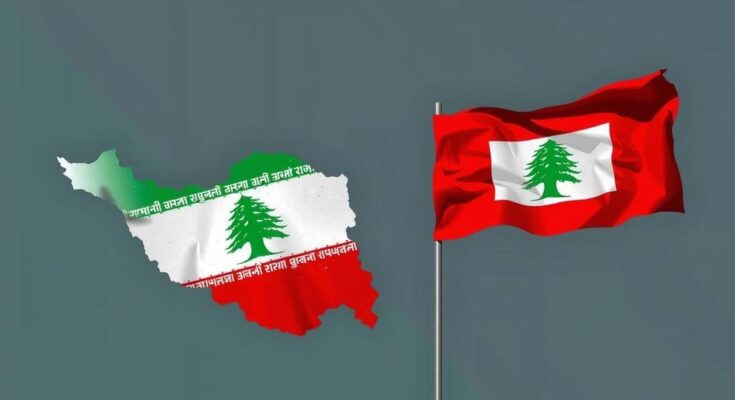The article analyzes Iran’s potential actions following a ceasefire in Lebanon, focusing on its support for Hezbollah and the implications for regional stability amidst increased military operations by Israel.
Iranian Foreign Minister Abbas Araghchi has expressed robust support for the “resistance” in Lebanon during a recent communication with an Iranian official, highlighting Iran’s backing of the Lebanese populace and government amid discussions of a potential ceasefire between Israel and Hezbollah. This sentiment is underscored by Iran sending a medical mission to Lebanon, showcasing solidarity and further signifying its ongoing commitment to Hezbollah through clandestine arms shipments.
On November 26, Iranian state media reported Araghchi praising the courage of Lebanese resistance fighters in their ongoing conflict against the Israeli military. Concurrently, Iran’s special representative discussed efforts to halt Israeli aggression and establish a ceasefire, marking the potential agreement as significant for both Iran and the wider region. This development is expected to redefine Iran’s strategic calculations, particularly in how it connects Hezbollah with Gaza, especially following the Hamas attack on October 7, which may have drawn Hezbollah unexpectedly into conflict.
As Israel has intensified its military operations in Lebanon, particularly targeting Hezbollah positions to mitigate perceived threats to northern Israel, tensions have escalated. The IDF’s unveiling of images depicting their commanders in key areas reinforces a narrative of Israeli resilience. Iran, meanwhile, finds itself at a crucial juncture, reminiscent of Julius Caesar’s historical crossing of the Rubicon. This scenario presents Iran with crucial decisions about advancing its nuclear ambitions and potentially urging its regional proxies in Iraq and Syria to intensify assaults on Israeli targets, particularly around the Golan Heights.
With a possible 60-day ceasefire on the horizon—coinciding with the transition to a new U.S. administration—Iran’s choices in the coming weeks hold significant implications. The decision to prioritize internal nuclear advancements or escalate proxy warfare against Israel will shape the regional security landscape.
The article examines the geopolitical implications of a prospective ceasefire between Israel and Hezbollah, emphasizing Iran’s involvement in supporting Hezbollah. The context revolves around the October 7 Hamas attack, which inadvertently influenced Hezbollah’s engagement in the conflict, and highlights Israel’s military response to perceived threats from Hezbollah within southern Lebanon.
In summary, Iran’s actions and decisions in response to a potential ceasefire in Lebanon will be pivotal for both its domestic policies and regional influence. The upcoming weeks are crucial as Iran deliberates between advancing its nuclear capabilities and leveraging its proxy forces to challenge Israel more aggressively. How Iran navigates this situation could redefine not only its standing in Lebanon but also the broader Middle Eastern geopolitical landscape.
Original Source: www.jpost.com




